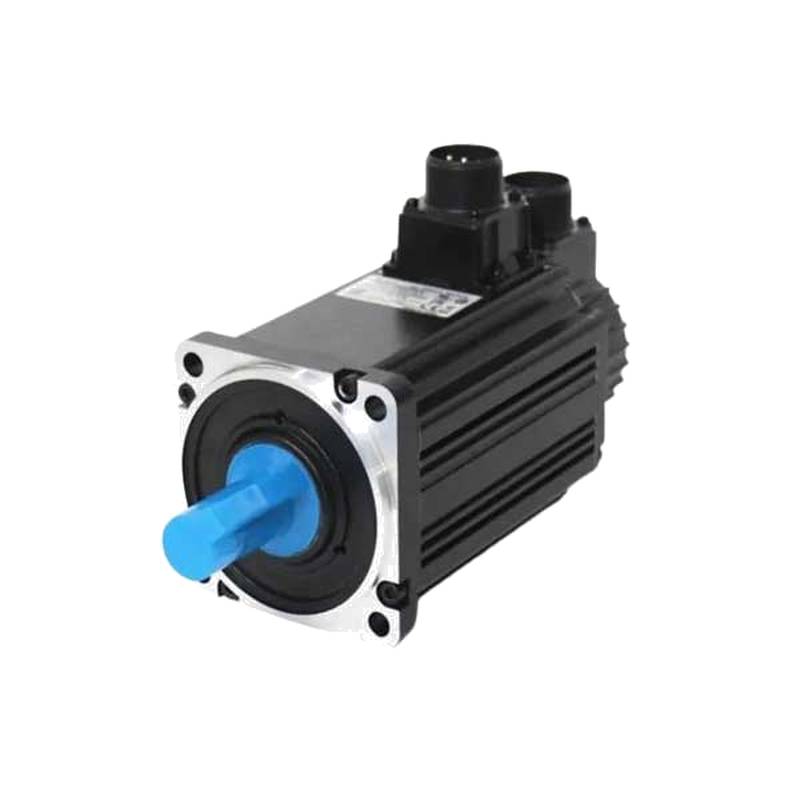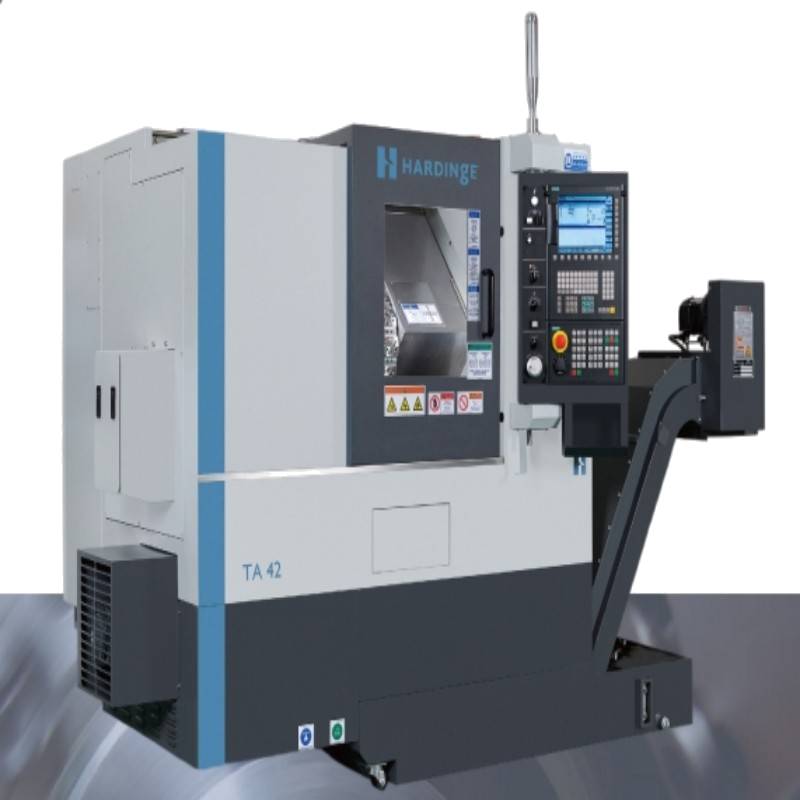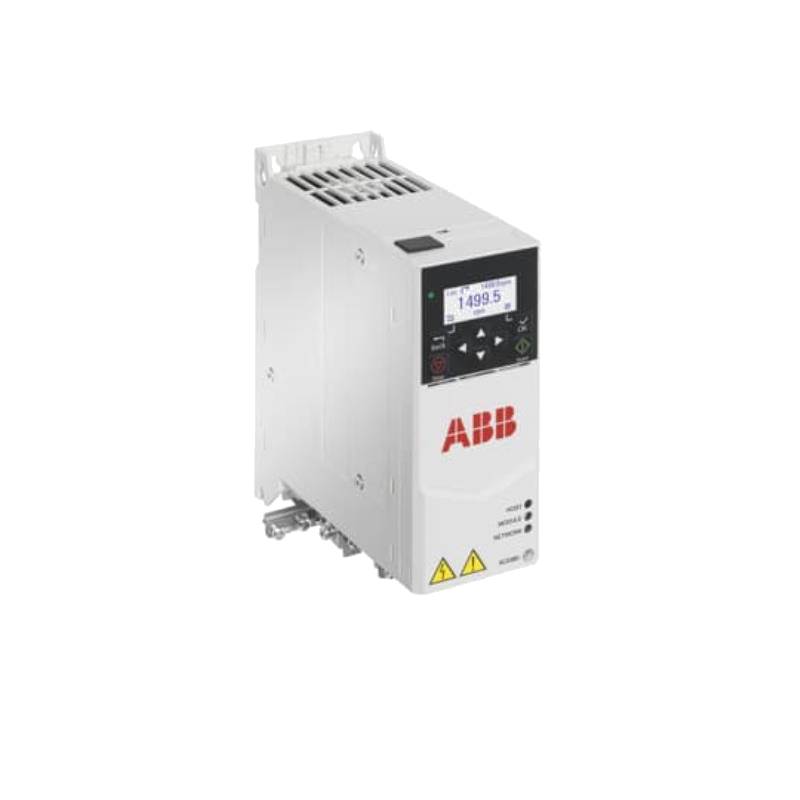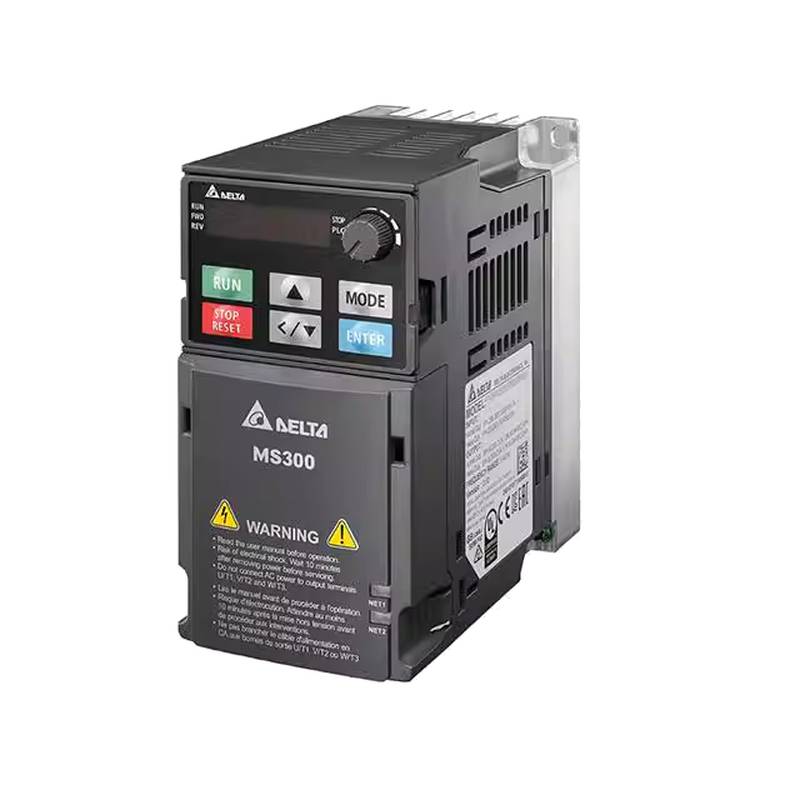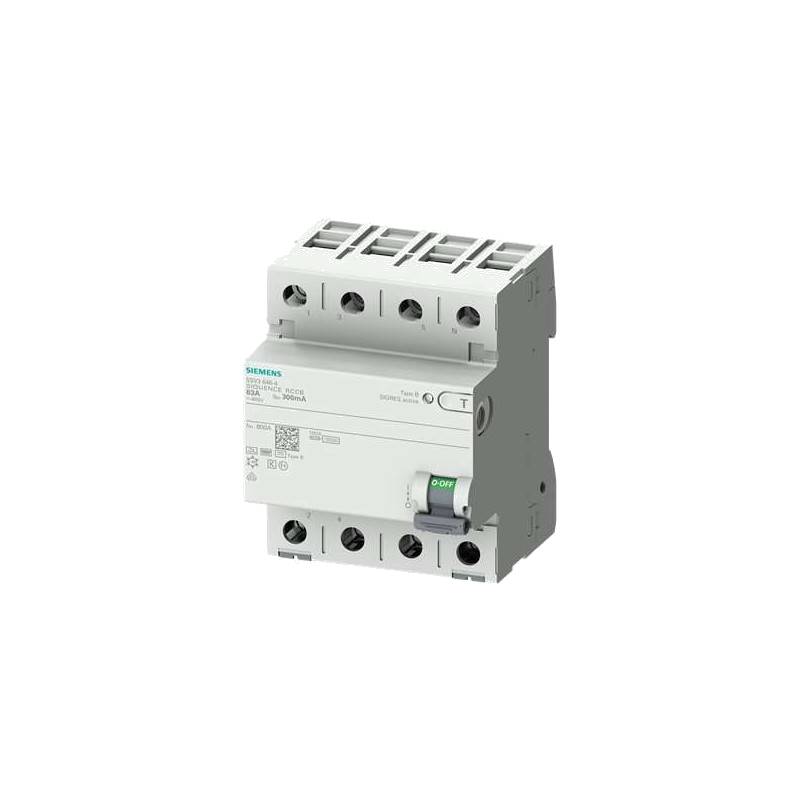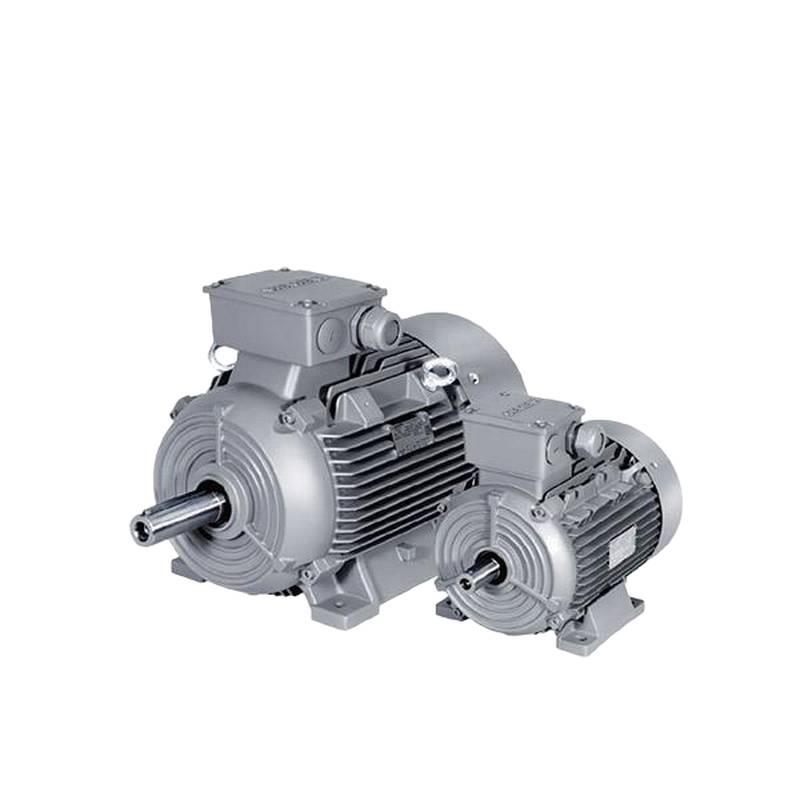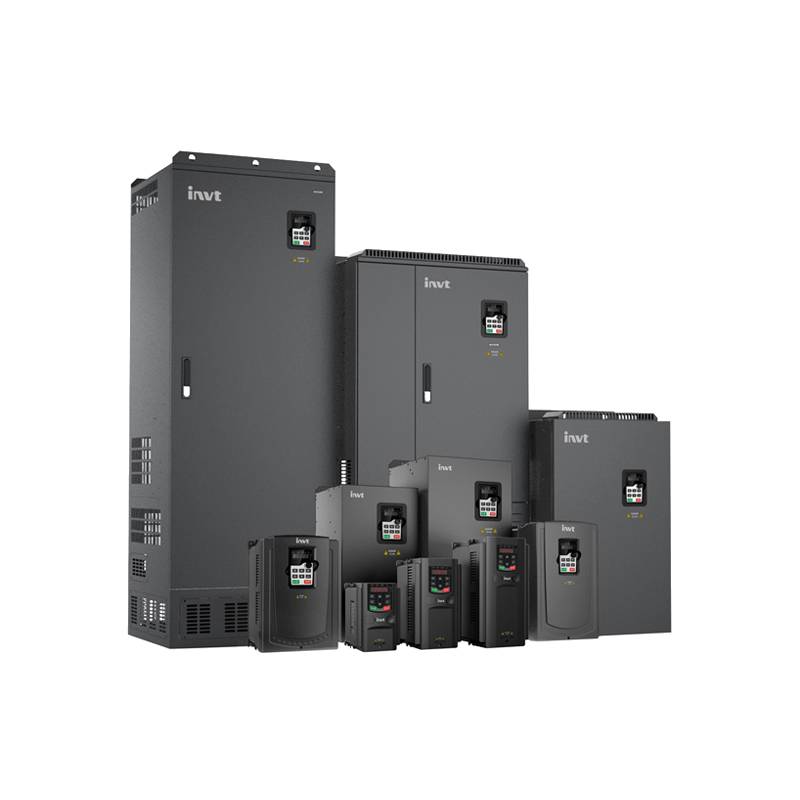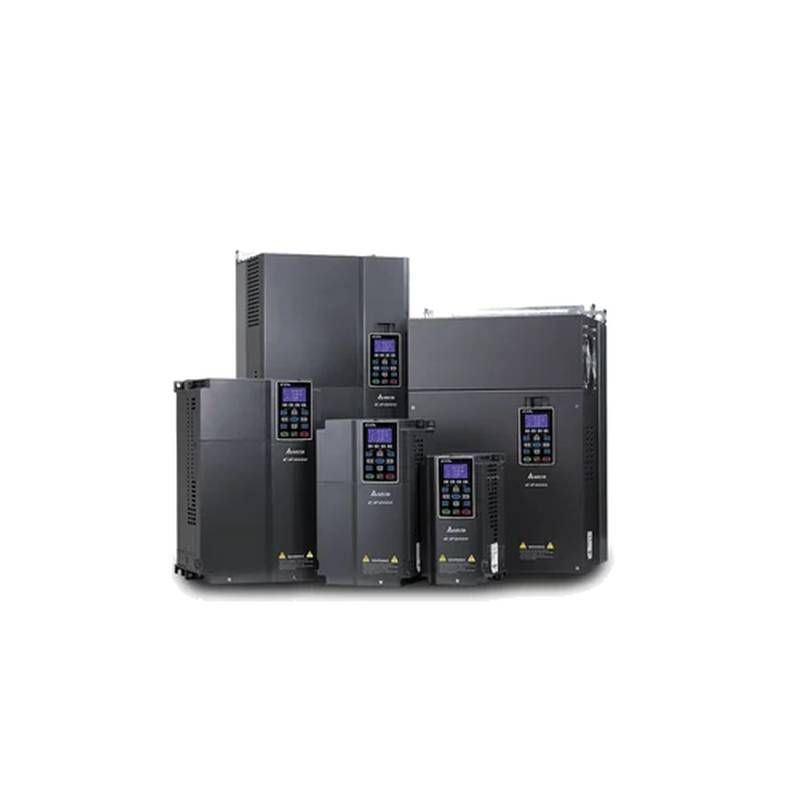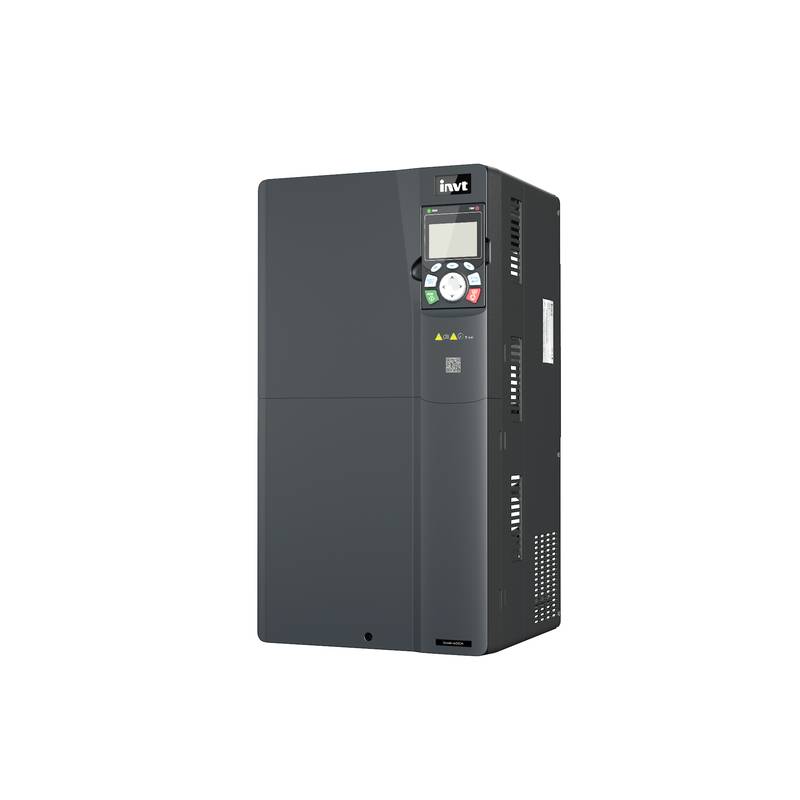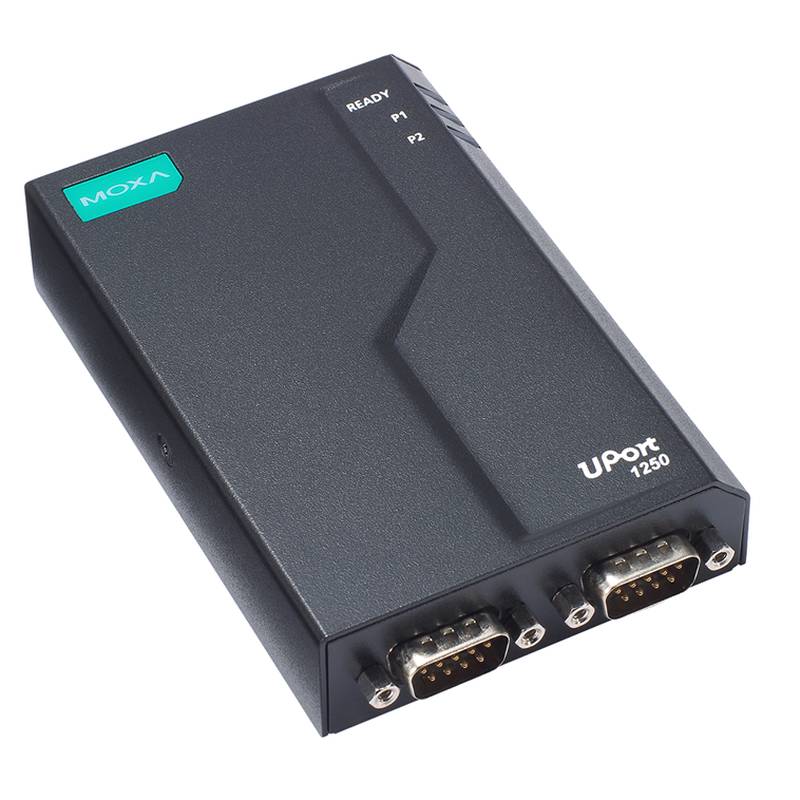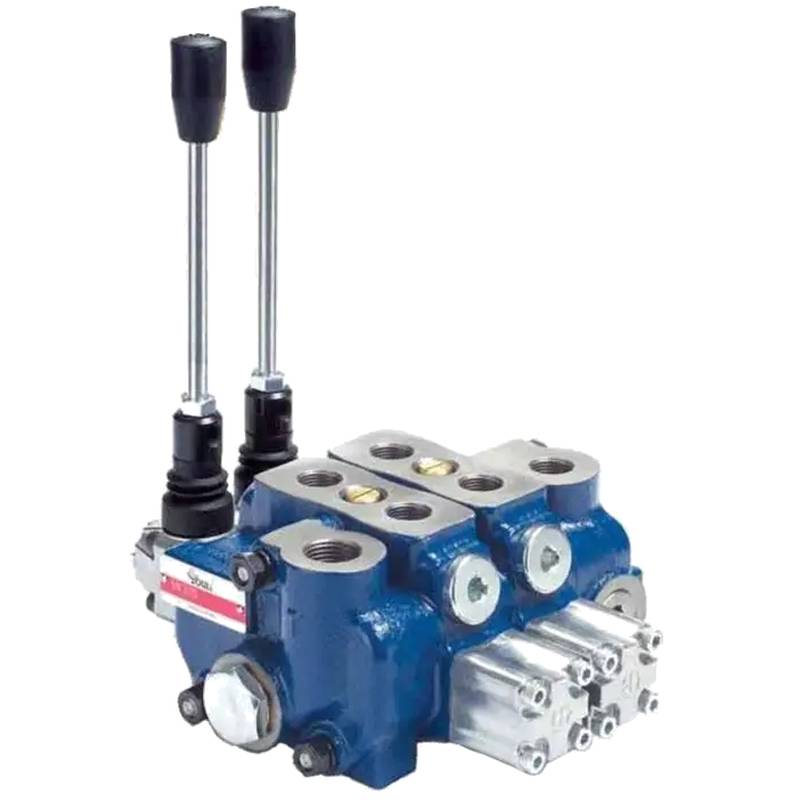
The Delta ECM-B3M-EP1820RS1 Absolute Encoder Medium Inertia Servo Motor represents a significant advancement in motion control technology, offering precision, reliability, and robust performance for demanding industrial applications. This medium inertia servo motor distinguishes itself with an integrated absolute encoder, providing accurate position feedback without the need for homing cycles, thereby enhancing operational efficiency and reducing downtime. Its key advantages include superior positional accuracy, high torque density, and advanced control capabilities, making it a preferred choice for complex automation tasks. Technical specifications highlight a rated voltage of 200V, a motor power of 1.8kW, and a rated speed of 2000 RPM, complemented by a compact frame size and a high-resolution absolute encoder that ensures unwavering position data even during power interruptions.
Product Specifications
| Feature | Specification |
| :------------------ | :------------------------ |
| Model | ECM-B3M-EP1820RS1 |
| Motor Type | Medium Inertia Servo Motor|
| Rated Voltage | 200V |
| Motor Power | 1.8kW |
| Rated Speed | 2000 RPM |
| Encoder Type | Absolute Encoder |
| Protection Class | IP65 |
| Insulation Class | Class F |
| Holding Brake | Yes |
Core Features & Market Positioning
The Delta ECM-B3M-EP1820RS1 stands out in the competitive servo motor market due to its sophisticated integration of a medium inertia design with a high-performance absolute encoder. This combination delivers exceptional dynamic response and precise positioning, crucial for applications requiring rapid accelerations and decelerations. Unlike incremental encoders, the absolute encoder provides a unique position value upon startup, eliminating the need for mechanical limit switches or homing routines. This feature significantly simplifies system setup and maintenance, while also improving overall system reliability by preventing errors caused by unexpected power loss. Delta's commitment to quality and innovation is evident, positioning the ECM-B3M-EP1820RS1 as a premium solution for industries prioritizing performance and operational continuity.
Key Application Scenarios
This servo motor is ideally suited for a wide array of industrial automation tasks where precision and speed are paramount. Common applications include high-speed pick-and-place machinery, CNC machining centers requiring accurate tool positioning, automated assembly lines demanding repeatable movements, and robotic systems where precise trajectory control is essential. The medium inertia design offers a balanced performance profile, suitable for applications that require both quick movements and the ability to handle moderate loads. Industries such as electronics manufacturing, automotive production, packaging, and metal fabrication will find the Delta ECM-B3M-EP1820RS1 a valuable component for enhancing productivity and product quality.
Practical System Integration Guidance
Integrating the Delta ECM-B3M-EP1820RS1 into existing systems is streamlined by its robust design and comprehensive support. The motor is compatible with Delta's ASDA-B3 series servo drives, ensuring seamless communication and optimal performance. Wiring should follow standard industrial practices, with attention to proper grounding and shielding for the encoder and power cables to prevent electromagnetic interference. The absolute encoder typically connects via a dedicated interface, often requiring specific configuration within the servo drive's parameters. Commissioning involves setting motor parameters, tuning the servo loop for desired performance, and configuring input/output signals for machine control. Referencing the specific servo drive's manual is crucial for detailed setup instructions, including encoder setup and safety interlocks.
Operation and Risk Mitigation
Safe operation of the Delta ECM-B3M-EP1820RS1 servo motor necessitates adherence to established safety protocols. Ensure all power and control connections are secure before energizing the system. Always implement proper guarding around moving machinery to prevent personnel injury. In the event of a fault, the motor and associated drive will typically signal an error code. Common troubleshooting involves checking power supply, connection integrity, and drive parameters. For instance, overcurrent faults may indicate excessive load or incorrect tuning, while position error faults might point to mechanical binding or inadequate loop gains. Always consult the drive's error code list for precise diagnostics and resolution steps.
Scalability & Long-Term Value
The Delta ECM-B3M-EP1820RS1 offers considerable long-term value through its compatibility and potential for system expansion. Its integration with Delta's broader automation ecosystem allows for easy scaling of production lines by incorporating additional servo axes or other Delta control products. The absolute encoder ensures that position data is retained, minimizing setup time if the motor needs to be re-energized or replaced. For manufacturers looking towards Industry 4.0 integration, Delta's servo systems often support communication protocols that facilitate data logging, remote monitoring, and predictive maintenance, enhancing the overall efficiency and lifespan of automated operations.
Frequently Asked Questions
What is an absolute encoder on a servo motor?
An absolute encoder provides a unique digital code for each distinct shaft position. This means the motor knows its exact location immediately upon power-up, without needing to be moved to a home reference point. This feature significantly reduces setup time and eliminates potential errors during system initialization.
Absolute encoders are crucial for applications requiring immediate and precise positioning, such as in robotics or automated manufacturing. Unlike incremental encoders, they retain position data even when power is lost, ensuring continuity and preventing costly downtime associated with re-homing procedures.
The continuous, unambiguous position feedback from an absolute encoder enhances overall system accuracy and reliability. It simplifies programming and diagnostics, making it an invaluable component for complex motion control systems where precision is paramount.
How does medium inertia affect servo motor performance?
Medium inertia motors strike a balance between rapid acceleration and the ability to handle moderate loads effectively. They are designed for applications that require a good dynamic response without the extreme speed demands of low inertia motors. This class of motor is highly versatile.
Compared to low inertia motors, medium inertia designs offer greater torque for their size, making them suitable for a broader range of tasks. They are less prone to overheating during continuous operation at high speeds than high inertia motors, providing a robust operational profile.
This characteristic makes the ECM-B3M-EP1820RS1 ideal for general-purpose automation, including material handling, conveyor systems, and machine tool applications where both speed and torque are important considerations. Their well-rounded performance ensures efficiency across various operational cycles.
What are the benefits of using an absolute encoder over an incremental encoder?
Absolute encoders eliminate the need for homing routines upon startup, saving valuable time in automated processes. They provide absolute position feedback, meaning the motor knows precisely where it is at all times, even after a power cycle or unexpected shutdown. This is a critical advantage.
With an absolute encoder, position data is maintained even without continuous power, preventing loss of location information. This inherent reliability significantly reduces the risk of operational errors and the need for manual intervention, thereby improving overall system uptime and efficiency.
Incremental encoders require a reference point to determine position, often involving a homing sequence that can be time-consuming and prone to error. Absolute encoders offer a simpler, more robust solution for applications demanding high precision and minimal downtime.
How do I wire the Delta ECM-B3M-EP1820RS1 servo motor?
Connect the motor power leads (U, V, W) to the corresponding terminals on the Delta ASDA-B3 servo drive. Ensure correct phasing for optimal performance. Improper wiring can lead to motor damage or erratic operation, so double-check connections.
The absolute encoder signals require a dedicated connection, typically through a multi-pin connector on the motor and a corresponding input on the servo drive. Consult the drive's manual for the specific pinout and connection diagram for the encoder interface.
Proper grounding of both the motor and the servo drive is essential to prevent electromagnetic interference (EMI). Use shielded cables for encoder and power connections where high electrical noise is present to ensure signal integrity and reliable operation.
What are common troubleshooting steps for servo motor faults?
Begin by verifying that the servo motor and drive are receiving stable power within the specified voltage range. Check all physical connections for looseness or damage, especially the motor power and encoder cables. Ensure the motor is not mechanically bound or overloaded.
Consult the specific error code displayed by the servo drive and refer to its troubleshooting manual for detailed explanations and recommended actions. Common codes relate to overcurrent, overvoltage, undervoltage, encoder errors, or thermal protection.
If issues persist after checking basic connections and power, review the servo drive's tuning parameters, such as proportional, integral, and derivative (PID) gains. Incorrect tuning can lead to oscillations, instability, or failure to reach target positions, requiring careful adjustment.
What is the IP65 rating for this servo motor?
An IP65 rating signifies that the Delta ECM-B3M-EP1820RS1 servo motor offers excellent protection against dust ingress and water jets. The '6' in IP65 indicates complete protection against solid particles, such as dust, ensuring internal components remain clean and functional.
The '5' in IP65 means the motor is protected against low-pressure water jets from any direction. This makes the motor suitable for installation in environments where occasional splashing or washing down is common, without compromising its operational integrity.
This robust ingress protection level is vital for industrial applications, particularly in food processing, chemical plants, or outdoor installations, where exposure to harsh environmental conditions is a concern. It contributes to the motor's overall durability and extended lifespan.
Can this servo motor be used with third-party servo drives?
While the Delta ECM-B3M-EP1820RS1 is optimized for use with Delta's ASDA-B3 series servo drives, it may be compatible with some third-party drives. This compatibility heavily depends on the drive's ability to support the motor's specific voltage, current requirements, and encoder feedback protocol.
Integration with non-Delta drives often requires careful configuration of drive parameters, including motor type, rated voltage, current limits, and encoder settings. The absolute encoder's specific communication interface might also present a challenge if the third-party drive does not support it.
For guaranteed performance and ease of integration, using the motor with its intended Delta servo drive is highly recommended. This ensures optimal tuning, reliable communication, and access to full feature sets, including advanced diagnostics and safety functions.
What is the significance of "Medium Inertia" for this motor?
Medium inertia refers to the motor's rotational inertia, which is a measure of its resistance to changes in rotational speed. A medium inertia motor offers a balance between the rapid acceleration capabilities of low inertia motors and the higher torque capacity of high inertia motors.
This design makes the ECM-B3M-EP1820RS1 versatile, suitable for applications requiring a good dynamic response for quick movements, but also the power to handle moderate loads without excessive strain. It avoids the limitations of extreme ends of the inertia spectrum.
For example, in pick-and-place operations or automated assembly, where rapid movements followed by precise stopping are common, a medium inertia motor provides an effective combination of speed and control. It is a good compromise for many general industrial automation tasks.
What is the expected lifespan of the Delta ECM-B3M-EP1820RS1?
The lifespan of the Delta ECM-B3M-EP1820RS1 servo motor is influenced by several factors, including operating conditions, maintenance practices, and the specific application's duty cycle. However, servo motors of this quality, when operated within their specified limits and properly maintained, are designed for long operational life.
Key components like bearings and windings are built to high industrial standards, contributing to longevity. The IP65 protection class also shields critical internal parts from environmental contaminants, further extending the motor's operational lifespan and reducing the risk of premature failure.
Regular maintenance, such as checking connections, ensuring proper ventilation, and monitoring for any unusual noise or vibration, can significantly contribute to maximizing the motor's service life. Adherence to the operational parameters outlined in the product specifications is crucial.
How does the absolute encoder contribute to safety?
The absolute encoder enhances safety by ensuring the motor always knows its exact position, even after power interruptions. This prevents unexpected movements when the system is re-energized, reducing the risk of collisions or operator injury that could occur if the motor started from an unknown position.
By eliminating the need for homing sequences, the absolute encoder simplifies system setup and reduces potential points of failure. This inherent reliability minimizes the chances of operational errors that could lead to hazardous situations, contributing to a safer working environment.
Furthermore, the precise and continuous position feedback allows safety systems, like emergency stops and interlocks, to function more effectively. They can react instantaneously based on the motor's known location, providing a more robust layer of protection for personnel and equipment.














